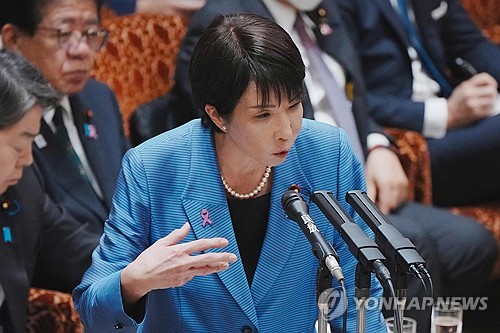
(Seoul=Yonhap Infomax) Yong Wook Kwon, Kyung Pyo Hong – The Japanese government has unveiled a massive stimulus package to address persistent inflation, but opinions remain divided over its potential impact on the economy.
On the 21st (local time), the Japanese government approved a comprehensive economic package totaling 21.3 trillion yen (approximately 199.21 trillion won, or $151 billion). This marks the largest stimulus since the pandemic and is a centerpiece of Prime Minister Sanae Takaichi’s expansionary fiscal policy aimed at boosting growth.
To finance the stimulus, the government plans to submit an extra budget worth 17.7 trillion yen, significantly surpassing the 13.9 trillion yen supplementary budget under former Prime Minister Shigeru Ishiba.
The government estimates the package will lift real GDP by 24 trillion yen, with a potential annualized growth rate of 1.4% if the effects persist over the next three years.
However, concerns are mounting that the Takaichi administration’s stimulus will further exacerbate Japan’s already massive public debt burden.
Japan’s financial markets have already priced in these concerns, pushing long-term yields to record highs and weakening the yen against the dollar.
Long-term Japanese government bond (JGB) yields have climbed steadily on fears that the large-scale stimulus will widen the fiscal deficit and necessitate further JGB issuance.
Last year, under the Ishiba administration, the supplementary budget amounted to 13.9 trillion yen, with an additional 6.69 trillion yen in JGBs issued. While the government plans to partially fund the new budget with tax revenues, multiple officials indicate that the scale of additional JGB issuance is likely to exceed last year’s level.
The yen’s depreciation, triggered by the stimulus, is fueling import price pressures for Japan, which relies heavily on overseas food, energy, and raw materials.
This has prompted Japanese foreign exchange authorities to voice growing concern over the yen’s weakness.
Prior to the package announcement, Bank of Japan (BOJ) Governor Kazuo Ueda told parliament, “We must be mindful that yen depreciation could push up import costs and overall prices, potentially impacting inflation.”
Finance Minister Satsuki Katayama warned regarding currency movements, “Foreign exchange intervention remains an option to address excessive volatility and speculative moves.”
Margarita Estevez-Abe, a researcher at Syracuse University, noted, “Japan has pursued expansionary economic policies for too long without revitalizing the economy.” She added, “We are already witnessing the market’s negative reaction to rising public debt, and further yen depreciation will hit ordinary Japanese households with even higher prices.”
Some market participants are already expressing concrete concerns about Japan’s fiscal soundness.
According to the Nihon Keizai Shimbun, the five-year JGB credit default swap (CDS) premium stood at 21.73 basis points as of the 20th, surpassing the 21.23bp recorded on October 13. This is the highest level since Takaichi was elected LDP leader and the highest since May 26 this year. The newspaper analyzed that the rise in CDS premiums is contributing to increased yen selling.
ywkwon@yna.co.kr
(End)
Copyright © Yonhap Infomax Unauthorized reproduction and redistribution prohibited.

